I see the Labour TD Sean Sherlock has proposed a citizen’s forum for agriculture. I’m not sure what good that would do. The challenges facing food production are extremely complex. Our political system already has enough populism attached to all sides of the debate, maybe too much populism.
A citizen's assembly of 100 people would statistically contain two farmers (both drystock). Most people would have some opinion on food production, but little expertise.
But everybody would be a consumer of food, the side of the equation that is barely discussed. Four of the 100 citizens would statistically be vegans, but how many would be people who practice "conscious consumerism".
That is, how many make food purchase choices informed by the sustainability of the product.
Simply reducing that equation to a 'meat/milk bad, vegan diet good' is an over-simplification of the impact of our food choices. There is a spectrum of meat and milk production, and a spectrum of grain, fruit and vegetable production.
That is more boring than the 'hero-villain scenario', and infers that any solutions will require buy in from all of us. It's far easier to talk of 'Big Dairy' as a bogeyman. All food production consumes resources, all food consumption needs food production.
Public opinion
I'd fear for a citizen's forum at a time when the debate around farming is so polarised. Most people are conflicted, as evidenced by the Sunday Independent poll showing that public opinion on agriculture's sectoral target is pretty evenly divided between those who think it's too high (37%), too low (23%) and about right (23%).
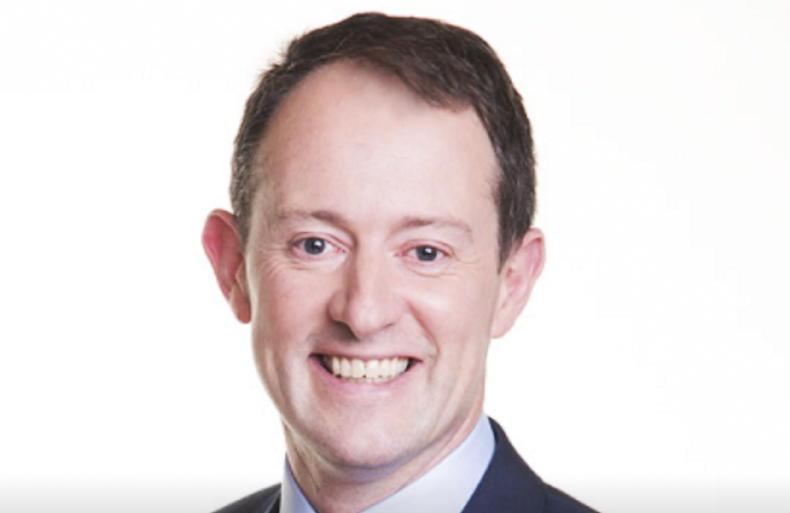
Labour's voice would be welcome. Sean Sherlock himself was a thoughtful and constructive Labour Party agriculture spokesman when first elected to Dáil Éireann in 2007. In that 2007-2011 Dáil, he constantly engaged on the issues of the day.
It’s a sign of the Labour Party’s electoral decline that Sherlock is current spokesperson, at present, for (deep breath) children, equality, disability, integration and youth, social protection, rural and community development.
He isn’t the Labour Party’s agriculture spokesperson, that role is filled by Alan Kelly, the recently deposed leader. He hasn’t been very vocal on the many issues facing farming and food production or, if he has, I am somehow unaware of that fact.
This is not kicking out against the Labour Party while they are down, but perhaps they should share their views on this issue more fully before kicking it over to 'the people'.
The political debate around the future of food production and farming in Ireland is dominated by three camps.
The rural independents can be relied upon to reject any message of significant change and throw scorn on the messenger.
Usually, the opposite side of the polarised debate is now occupied by one of the small but increasingly influential group of environmental/sustainability/energy experts who are intensely critical of farming, Government policy around farming and farm leaders.
Meanwhile, the Government try to move the conversation along without annoying too many people and sound pretty moderate. And pretty boring.
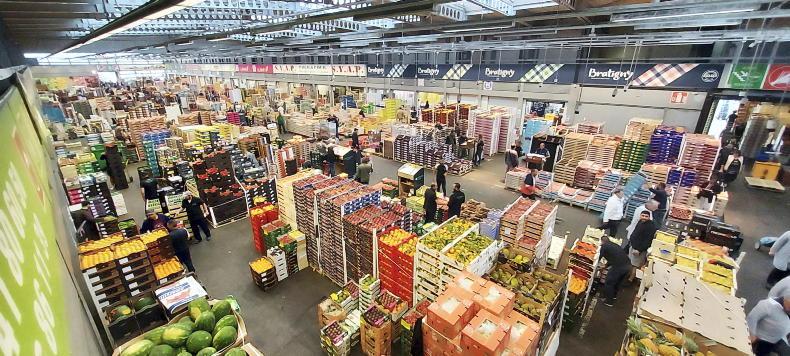
A view of half of the vast fruit and vegetable hall in Rungis Market. We need to consider the consumption of food as much as its production.
However, the Labour Party, a national party that has long elected people in mainly rural constituencies such as Sean Sherlock’s Cork East, has been pretty quiet on this national debate. It would be great to hear from them, to get a strong sense of what they stand for and against.
Debate still full of insinuation
The debate around the future of Irish farming is still tainted by the underlying insinuation that the other side is acting in bad faith. And it isn’t helping. Allow me to present a small example.
This week, the Irish Farmers' Association (IFA) presented an analysis of the sectoral emissions target the Government has announced in a webinar.
On Saturday, climate activist and lecturer Sadhbh O’Neill analysed the analysis in a Twitter thread. I found both contributions informative.
One comment O’Neill made in particular caught my attention. It accompanied a slide from the IFA presentation, which showed the greenhouse gas (GHG) emissions from Irish agriculture from 1990 to 2021.
This slide again cherry picks the baseline year in which to represent agri GHGs
“This slide again cherry picks the baseline year in which to represent agri GHGs,” said O’Neill, arguing the relevant year was 2011 “when livestock began to rise after a steady decline”.
The thing is, I’ve seen slides showing emissions from Irish farming that takes 1990 as a base year since, well since the 1990s.
I’ve always thought that 1990 was used as a base year because it was the base year for the Kyoto protocol.
The Kyoto protocol was the first acknowledgement of the world’s governments that global warming was real and must be addressed in a coherent way by the nations of the world.
I’ve seen such graphs hundreds of times. We’ve printed them in the Irish Farmers Journal, and were doing so before the decline in the national herd was reversed in anticipation of the removal of dairy quotas.
I’m pretty sure such a slide was used at a conference examining Irish farming and the environment that I helped to organise as a member of Macra na Feirme. I wrote my own presentation to that conference on my honeymoon, and I’ll celebrate my 27th wedding anniversary in a month’s time.
If Sadhbh O’Neill believes that 2011 is the most appropriate base year to select, she is entitled to make that point. However, describing the use of 1990 as a base year as “cherry picking” when it is a globally recognised base year for looking at CO2 emissions, is erroneous.
I cannot imagine that Sadhbh O’Neill is unaware of the significance of 1990 because of Kyoto - she is a lecturer in climate policy in DCU. Therefore, I am forced to question the motivation of this particular comment.
The irony is that Sadhbh herself states that 2011 is the year she would choose as a base year because it was the year that livestock numbers bottomed out prior to the build of dairy numbers in anticipation of the abolition of milk quotas.
It isn’t 2018, the base year for the current emissions targets. It isn’t a significant year, as far as I could ascertain from some googling, in terms of being a base year for the Paris Accord or the Copenhagen agreement or any other global or European climate agreement.
It simply is the year that shows the trajectory of farming emissions in the worst possible light. That actually does sound like cherry picking.
Not the movies
There is a type of scientist that has become a Hollywood stereotype. The Cassandra type, warning society that it is destroying itself or the planet, and that we must change our ways. Usually, nobody listens until it’s too late, and we wreck the planet, or at least the US, where all these films are set.
The scientist can fit within three distinct subsets, which largely parallels to the different types of cowboy in old westerns - the person with too much integrity, whose personal life has suffered from their principled decisions; the flawed, self-destructive genius, often an alcoholic; and the eccentric that no-one takes seriously.
Think Denis Quaid, John Cusack, and Jeff Goldblum respectively (the cowboys could be Gary Cooper in High Noon, Kirk Douglas in Gunfight at the OK Corral and Jason Robards in The Ballad of Cable Hogue).
This isn’t a movie, however, and if we don’t get this right, the franchise will end.
For that reason, scientists are right to be blunt about our options. But they need to win people over to the argument as much as win the argument.
This isn’t a debating contest, it’s the debate about how we sustain a living planet. Scoring points and proving points are two different things, but the lines are often blurred.
Farmers in movies are almost always portrayed as decent but dour, hardworking but hard-headed. The farmer that haunts me is Casey Affleck’s in Interstellar. If you haven’t seen the film, I can’t recommend it highly enough.
Affleck is the son of a NASA pilot who went farming with his wife (too much integrity for the moral maze he had worked in).
Affleck is a simple farmer; his sister is the best scientific mind of her generation. He tries to grow crops, but the land is dying, as the earth is dying. So, he does what farmers often do, he keeps doing the same thing but tries harder. And it doesn’t work.
Sustainable systems
Every farmer should watch this film, because that could be us. If we keep producing and consuming food as if there were no consequence, there will be consequences. Probably dire ones. Maybe not in my lifetime, but definitely in the lifetime of my children.
But to develop sustainable food systems, we need fundamental change in how food is consumed. Change in how food is valued and how it’s priced. These are two different things, by the way, but food is both undervalued and under-priced in a country like Ireland.
1990 is the base year for the Irish consumer price index (CPI) as well as the Kyoto agreement. From 1990 to 2021, food had fallen in price in real terms by 15%.
If we are serious about sustainable food production, food must be priced to reflect production costs and leave a decent margin for the average producer. Tiny margins drive producers towards intensity and scale.
Fundamental change
We need fundamental change in how food is marketed, labelled and packaged. We cannot sustain or justify the current levels of use of plastic and packaging.
As regards labelling, consumers need some guidance as to the sustainability of the food products they are choosing between. Perhaps some kind of sustainability index or even colour coding would help.
Doing any of this at this time could be called poor timing. The pressure consumers are under is real and is unlikely to go away any time soon. But we have to do this.
Because unless consumers preferentially choose food that is produced in countries that are trying, like Ireland, ahead of food that is produced in countries that aren’t trying at all, the efforts of EU farmers will be completely in vain in terms of global production and global emissions.
Forum could have merit
Maybe there is some merit in what Sean Sherlock was saying. We do need a public debate around the future of food. It is central to our existence and our everyday experience.
But rather than 100 random people being informed by the experts who are in vogue at this moment, better to bring all them in for a broad conversation about how to get to where we all agree we want to go to. For the destination is not in argument, it’s the route to take that is the tricky part.
But we need some decommissioning for the debate to have clarity or substance. Everyone needs to leave their weaponised arguments outside the door. And the chicken and egg conundrum must be addressed.
We only change food production if we change food consumption. We could eradicate much of the 20% of purchased food that is wasted - one million tonnes every year. It gets less oxygen than slashing the national herd, but then that only requires change from a small minority.
This isn’t a movie, there won’t be any neat ending. The world is messy and chaotic. Everything is a trade-off. Sadhbh O’Neill isn’t Jessica Chastain in Interstellar; Tim Cullinan isn’t Gary Cooper in High Noon.
Saving the planet requires the willingness of us all to channel our inner David Trimble or John Hume.
We must reach across the divide and persuade the people who see the world differently that we all have to move closer to each other to build a future for our children. And that applies to the how the world produces food as much as any other issue. Maybe even more.
I see the Labour TD Sean Sherlock has proposed a citizen’s forum for agriculture. I’m not sure what good that would do. The challenges facing food production are extremely complex. Our political system already has enough populism attached to all sides of the debate, maybe too much populism.
A citizen's assembly of 100 people would statistically contain two farmers (both drystock). Most people would have some opinion on food production, but little expertise.
But everybody would be a consumer of food, the side of the equation that is barely discussed. Four of the 100 citizens would statistically be vegans, but how many would be people who practice "conscious consumerism".
That is, how many make food purchase choices informed by the sustainability of the product.
Simply reducing that equation to a 'meat/milk bad, vegan diet good' is an over-simplification of the impact of our food choices. There is a spectrum of meat and milk production, and a spectrum of grain, fruit and vegetable production.
That is more boring than the 'hero-villain scenario', and infers that any solutions will require buy in from all of us. It's far easier to talk of 'Big Dairy' as a bogeyman. All food production consumes resources, all food consumption needs food production.
Public opinion
I'd fear for a citizen's forum at a time when the debate around farming is so polarised. Most people are conflicted, as evidenced by the Sunday Independent poll showing that public opinion on agriculture's sectoral target is pretty evenly divided between those who think it's too high (37%), too low (23%) and about right (23%).

Labour's voice would be welcome. Sean Sherlock himself was a thoughtful and constructive Labour Party agriculture spokesman when first elected to Dáil Éireann in 2007. In that 2007-2011 Dáil, he constantly engaged on the issues of the day.
It’s a sign of the Labour Party’s electoral decline that Sherlock is current spokesperson, at present, for (deep breath) children, equality, disability, integration and youth, social protection, rural and community development.
He isn’t the Labour Party’s agriculture spokesperson, that role is filled by Alan Kelly, the recently deposed leader. He hasn’t been very vocal on the many issues facing farming and food production or, if he has, I am somehow unaware of that fact.
This is not kicking out against the Labour Party while they are down, but perhaps they should share their views on this issue more fully before kicking it over to 'the people'.
The political debate around the future of food production and farming in Ireland is dominated by three camps.
The rural independents can be relied upon to reject any message of significant change and throw scorn on the messenger.
Usually, the opposite side of the polarised debate is now occupied by one of the small but increasingly influential group of environmental/sustainability/energy experts who are intensely critical of farming, Government policy around farming and farm leaders.
Meanwhile, the Government try to move the conversation along without annoying too many people and sound pretty moderate. And pretty boring.

A view of half of the vast fruit and vegetable hall in Rungis Market. We need to consider the consumption of food as much as its production.
However, the Labour Party, a national party that has long elected people in mainly rural constituencies such as Sean Sherlock’s Cork East, has been pretty quiet on this national debate. It would be great to hear from them, to get a strong sense of what they stand for and against.
Debate still full of insinuation
The debate around the future of Irish farming is still tainted by the underlying insinuation that the other side is acting in bad faith. And it isn’t helping. Allow me to present a small example.
This week, the Irish Farmers' Association (IFA) presented an analysis of the sectoral emissions target the Government has announced in a webinar.
On Saturday, climate activist and lecturer Sadhbh O’Neill analysed the analysis in a Twitter thread. I found both contributions informative.
One comment O’Neill made in particular caught my attention. It accompanied a slide from the IFA presentation, which showed the greenhouse gas (GHG) emissions from Irish agriculture from 1990 to 2021.
This slide again cherry picks the baseline year in which to represent agri GHGs
“This slide again cherry picks the baseline year in which to represent agri GHGs,” said O’Neill, arguing the relevant year was 2011 “when livestock began to rise after a steady decline”.
The thing is, I’ve seen slides showing emissions from Irish farming that takes 1990 as a base year since, well since the 1990s.
I’ve always thought that 1990 was used as a base year because it was the base year for the Kyoto protocol.
The Kyoto protocol was the first acknowledgement of the world’s governments that global warming was real and must be addressed in a coherent way by the nations of the world.
I’ve seen such graphs hundreds of times. We’ve printed them in the Irish Farmers Journal, and were doing so before the decline in the national herd was reversed in anticipation of the removal of dairy quotas.
I’m pretty sure such a slide was used at a conference examining Irish farming and the environment that I helped to organise as a member of Macra na Feirme. I wrote my own presentation to that conference on my honeymoon, and I’ll celebrate my 27th wedding anniversary in a month’s time.
If Sadhbh O’Neill believes that 2011 is the most appropriate base year to select, she is entitled to make that point. However, describing the use of 1990 as a base year as “cherry picking” when it is a globally recognised base year for looking at CO2 emissions, is erroneous.
I cannot imagine that Sadhbh O’Neill is unaware of the significance of 1990 because of Kyoto - she is a lecturer in climate policy in DCU. Therefore, I am forced to question the motivation of this particular comment.
The irony is that Sadhbh herself states that 2011 is the year she would choose as a base year because it was the year that livestock numbers bottomed out prior to the build of dairy numbers in anticipation of the abolition of milk quotas.
It isn’t 2018, the base year for the current emissions targets. It isn’t a significant year, as far as I could ascertain from some googling, in terms of being a base year for the Paris Accord or the Copenhagen agreement or any other global or European climate agreement.
It simply is the year that shows the trajectory of farming emissions in the worst possible light. That actually does sound like cherry picking.
Not the movies
There is a type of scientist that has become a Hollywood stereotype. The Cassandra type, warning society that it is destroying itself or the planet, and that we must change our ways. Usually, nobody listens until it’s too late, and we wreck the planet, or at least the US, where all these films are set.
The scientist can fit within three distinct subsets, which largely parallels to the different types of cowboy in old westerns - the person with too much integrity, whose personal life has suffered from their principled decisions; the flawed, self-destructive genius, often an alcoholic; and the eccentric that no-one takes seriously.
Think Denis Quaid, John Cusack, and Jeff Goldblum respectively (the cowboys could be Gary Cooper in High Noon, Kirk Douglas in Gunfight at the OK Corral and Jason Robards in The Ballad of Cable Hogue).
This isn’t a movie, however, and if we don’t get this right, the franchise will end.
For that reason, scientists are right to be blunt about our options. But they need to win people over to the argument as much as win the argument.
This isn’t a debating contest, it’s the debate about how we sustain a living planet. Scoring points and proving points are two different things, but the lines are often blurred.
Farmers in movies are almost always portrayed as decent but dour, hardworking but hard-headed. The farmer that haunts me is Casey Affleck’s in Interstellar. If you haven’t seen the film, I can’t recommend it highly enough.
Affleck is the son of a NASA pilot who went farming with his wife (too much integrity for the moral maze he had worked in).
Affleck is a simple farmer; his sister is the best scientific mind of her generation. He tries to grow crops, but the land is dying, as the earth is dying. So, he does what farmers often do, he keeps doing the same thing but tries harder. And it doesn’t work.
Sustainable systems
Every farmer should watch this film, because that could be us. If we keep producing and consuming food as if there were no consequence, there will be consequences. Probably dire ones. Maybe not in my lifetime, but definitely in the lifetime of my children.
But to develop sustainable food systems, we need fundamental change in how food is consumed. Change in how food is valued and how it’s priced. These are two different things, by the way, but food is both undervalued and under-priced in a country like Ireland.
1990 is the base year for the Irish consumer price index (CPI) as well as the Kyoto agreement. From 1990 to 2021, food had fallen in price in real terms by 15%.
If we are serious about sustainable food production, food must be priced to reflect production costs and leave a decent margin for the average producer. Tiny margins drive producers towards intensity and scale.
Fundamental change
We need fundamental change in how food is marketed, labelled and packaged. We cannot sustain or justify the current levels of use of plastic and packaging.
As regards labelling, consumers need some guidance as to the sustainability of the food products they are choosing between. Perhaps some kind of sustainability index or even colour coding would help.
Doing any of this at this time could be called poor timing. The pressure consumers are under is real and is unlikely to go away any time soon. But we have to do this.
Because unless consumers preferentially choose food that is produced in countries that are trying, like Ireland, ahead of food that is produced in countries that aren’t trying at all, the efforts of EU farmers will be completely in vain in terms of global production and global emissions.
Forum could have merit
Maybe there is some merit in what Sean Sherlock was saying. We do need a public debate around the future of food. It is central to our existence and our everyday experience.
But rather than 100 random people being informed by the experts who are in vogue at this moment, better to bring all them in for a broad conversation about how to get to where we all agree we want to go to. For the destination is not in argument, it’s the route to take that is the tricky part.
But we need some decommissioning for the debate to have clarity or substance. Everyone needs to leave their weaponised arguments outside the door. And the chicken and egg conundrum must be addressed.
We only change food production if we change food consumption. We could eradicate much of the 20% of purchased food that is wasted - one million tonnes every year. It gets less oxygen than slashing the national herd, but then that only requires change from a small minority.
This isn’t a movie, there won’t be any neat ending. The world is messy and chaotic. Everything is a trade-off. Sadhbh O’Neill isn’t Jessica Chastain in Interstellar; Tim Cullinan isn’t Gary Cooper in High Noon.
Saving the planet requires the willingness of us all to channel our inner David Trimble or John Hume.
We must reach across the divide and persuade the people who see the world differently that we all have to move closer to each other to build a future for our children. And that applies to the how the world produces food as much as any other issue. Maybe even more.







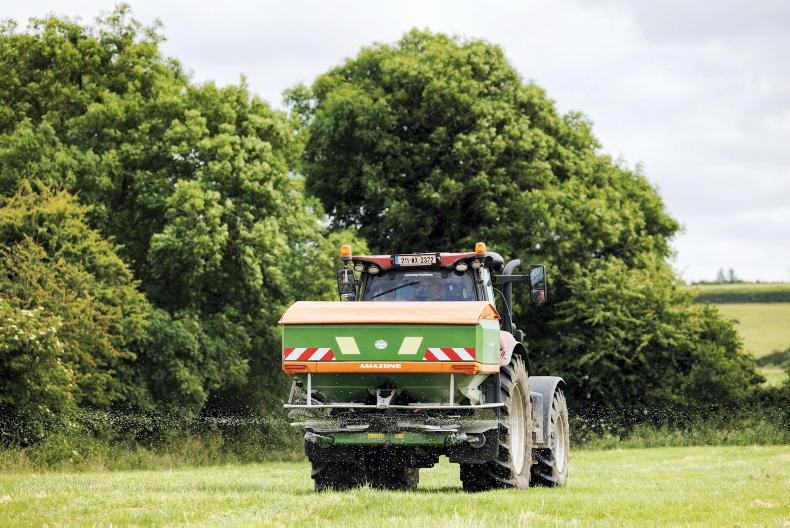

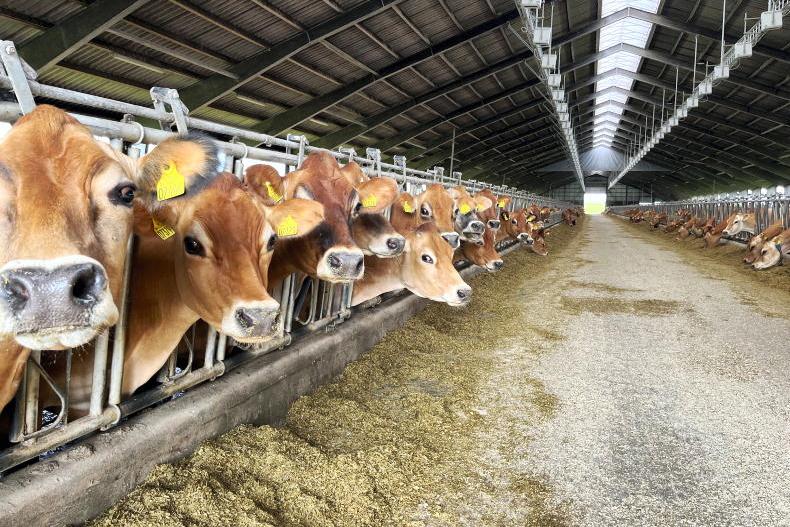
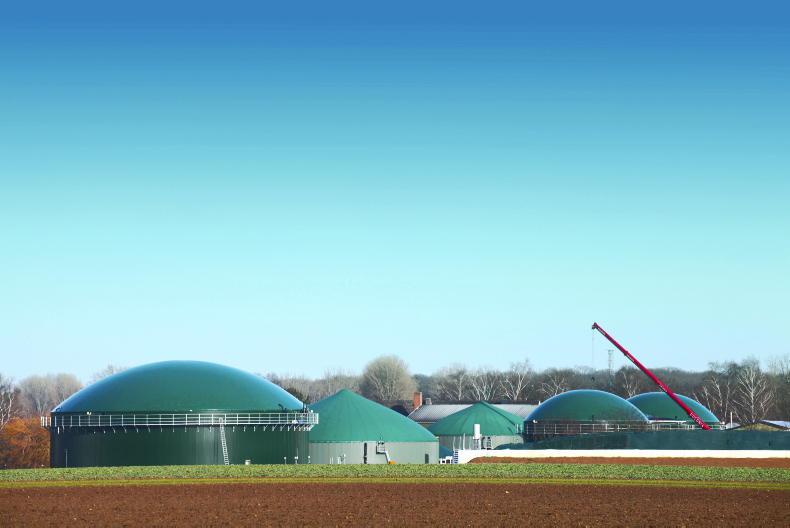

SHARING OPTIONS